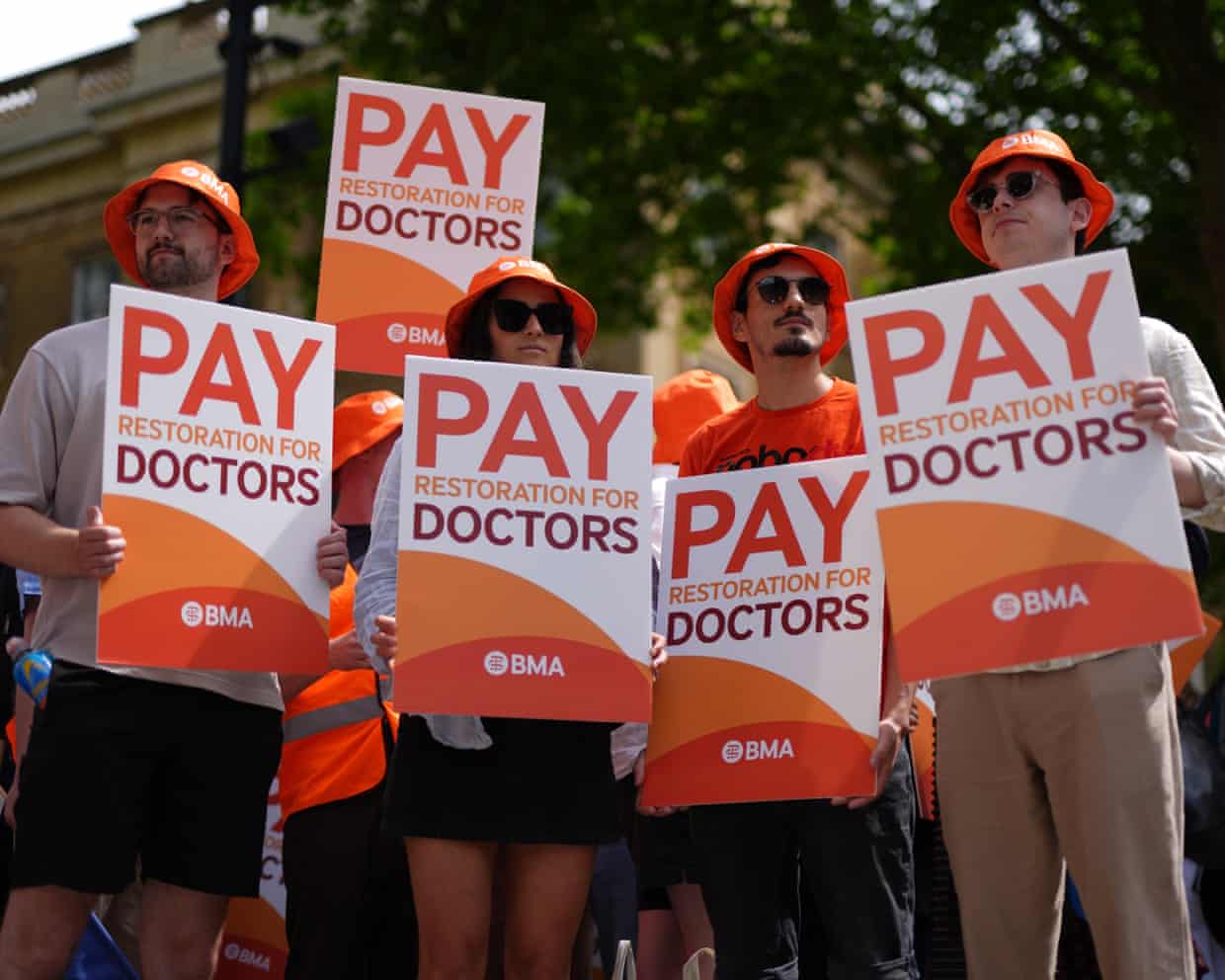Health
Resident Doctors Strike Across England for Better Pay Demands

Up to 50,000 resident doctors in England commenced a five-day strike beginning at 07:00 on July 25, 2023. This significant action aims to address ongoing concerns regarding pay and working conditions. The strike is set to conclude at 07:00 on July 30, highlighting the urgency of the issues at hand.
The British Medical Association (BMA) has organized the strike, emphasizing that the current pay structure is inadequate for the demands placed on medical professionals. The BMA argues that doctors face increasing workloads without corresponding financial recognition, leading to high levels of stress and burnout.
In a statement, the BMA called for a pay rise of 35%, citing that current salaries have not kept pace with inflation and the rising cost of living. This demand reflects broader discontent within the healthcare sector, as many employees feel undervalued and overworked.
Health Secretary Steve Barclay has responded to the strike, urging doctors to reconsider their decision to walk out. He stated that the government is committed to finding a resolution but emphasized the need for a balanced approach to public sector pay amidst economic constraints.
The strike has raised concerns about the potential impact on patient care. Hospitals across England have begun to cancel non-urgent procedures and appointments in anticipation of the disruption. The National Health Service (NHS) is bracing for challenges in managing patient needs during this period of reduced staffing.
As the strike progresses, the BMA remains resolute in its demands, advocating for improved working conditions and fair compensation for resident doctors. The outcome of this industrial action could have significant implications for the future of healthcare in England, particularly as recruitment and retention of medical staff become increasingly critical issues.
With the strike entering its second day, public opinion appears divided. Some support the doctors’ right to protest for better pay, while others express concern for the potential impact on healthcare services. As negotiations continue, both the government and the BMA face pressure to reach an agreement that satisfies the needs of medical professionals while ensuring the welfare of patients.
The situation remains fluid, with updates expected as the strike unfolds. The outcome may set a precedent for future negotiations between healthcare workers and the government, reflecting broader trends in labor relations across various sectors.
-

 Technology5 months ago
Technology5 months agoDiscover the Top 10 Calorie Counting Apps of 2025
-

 Health3 months ago
Health3 months agoBella Hadid Shares Health Update After Treatment for Lyme Disease
-

 Health3 months ago
Health3 months agoErin Bates Shares Recovery Update Following Sepsis Complications
-

 Technology4 months ago
Technology4 months agoDiscover How to Reverse Image Search Using ChatGPT Effortlessly
-

 Technology1 month ago
Technology1 month agoDiscover 2025’s Top GPUs for Exceptional 4K Gaming Performance
-

 Technology3 months ago
Technology3 months agoElectric Moto Influencer Surronster Arrested in Tijuana
-

 Technology5 months ago
Technology5 months agoMeta Initiates $60B AI Data Center Expansion, Starting in Ohio
-

 Technology5 months ago
Technology5 months agoRecovering a Suspended TikTok Account: A Step-by-Step Guide
-

 Health4 months ago
Health4 months agoTested: Rab Firewall Mountain Jacket Survives Harsh Conditions
-

 Lifestyle5 months ago
Lifestyle5 months agoBelton Family Reunites After Daughter Survives Hill Country Floods
-

 Health3 months ago
Health3 months agoAnalysts Project Stronger Growth for Apple’s iPhone 17 Lineup
-

 Technology4 months ago
Technology4 months agoHarmonic Launches AI Chatbot App to Transform Mathematical Reasoning





















